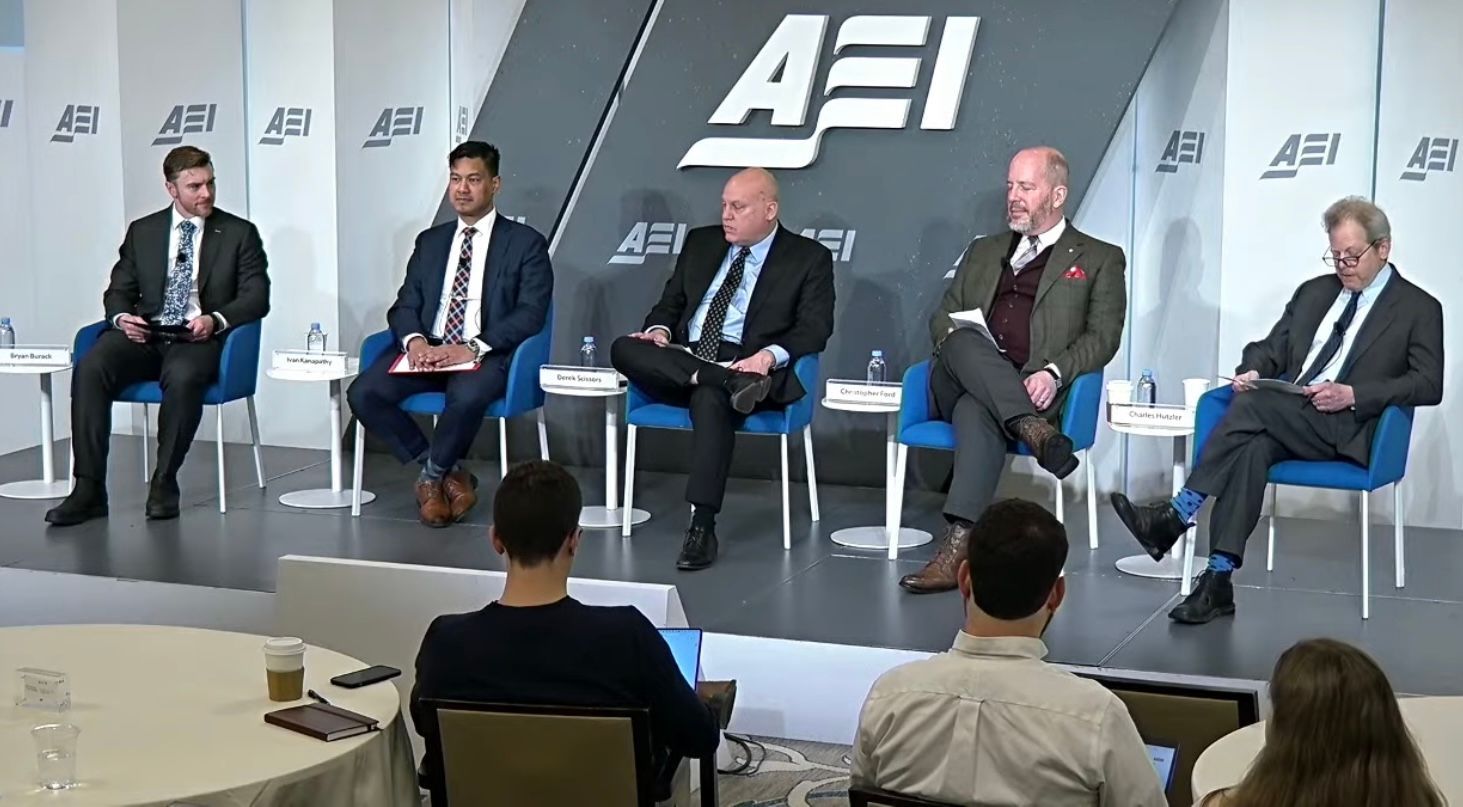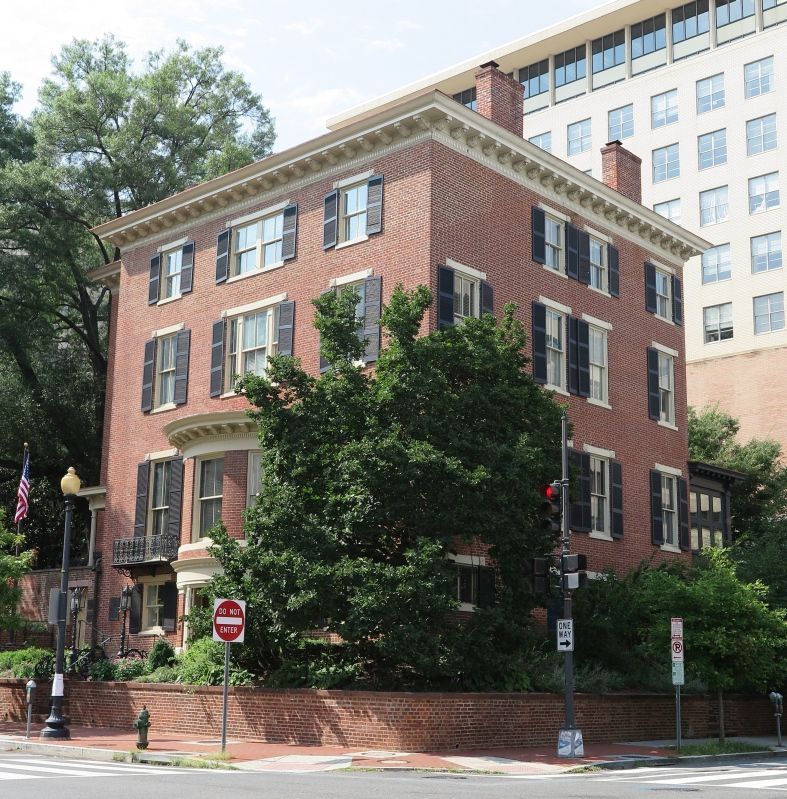The Hon. Christopher A. Ford
New Paradigms Forum -- International Security Policy Since 2009
Obama’s “Nixon in China Moment” on Disarmament
Note:
Below is the text on which Dr. Ford based his remarks to a conference on “The Nuclear Nonproliferation Regime: Laying the Groundwork for the 2015 Review Conference” held at Wiston House at Wilton Park in the United Kingdom, on December 12, 2012. Assistant Secretary of Defense Madelyn Creedon and Assistant Secretary of State Thomas Countryman both also took part in this panel discussion.
Good morning. Let me begin by expressing my thanks to the wonderful Wilton Park staff, the Foreign and Commonwealth Office, the Government of Norway, and the Sandia and Los Alamos National Laboratories for their kind invitation to participate in this conference.
I’d like to offer some thoughts about the diplomatic agenda leading up to the 2015 Review Conference (RevCon) for the Nuclear Nonproliferation Treaty (NPT). First, however, I hope you’ll indulge me in what might seem to be a little digression, which I assure you is indeed relevant.
In the American vernacular, we have a turn of phrase about a “Nixon-in-China moment.” It refers to a situation in which a leader with a well-established reputation and investment of political capital in moving in one direction is able suddenly to move constructively in what appears to be the opposite direction. The phrase comes from President Richard Nixon’s willingness to reach out to Communist China in the early 1970s – a feat of statesmanship that he might not have been politically able to accomplish had he not first acquired an ironclad reputation as an anti-Communist hardliner.
Why do I think this phrase is useful in connection with thinking about the agenda for the 2015 RevCon? I’ve already offered thoughts elsewhere [see, e.g., here and here ] about what I think some of the elements need to be, not least in contending that it is time to abandon the now pretty clearly discredited idea that demonstrating disarmament “credibility” is the key to turning around international nonproliferation policy. We need to spend a lot more time defending nonproliferation as something that has value on its own terms and for all NPT States Party , and not merely as a way station on the road to some presumed future of nuclear weapons abolition. We must get out of the dangerous business of seeming – as all too much such discourse sometimes tends to do – to validate the pernicious assumption that a failure to reach nuclear “zero” essentially justifies proliferation. I’d also like to see us finally start challenging proliferation-facilitating interpretations of the law – particularly Article IV of the NPT, which to my knowledge the U.S. hasn’t tried to do since 2005 (and did none too emphatically even then).
But let me move past those points to what I think is an equally important one with respect to the U.S. diplomatic posture for the upcoming RevCon. And since so many participants here have felt very free to tell the American government what to do on disarmament, let me – with apologies to Madelyn and Tom – pile on and offer my own thoughts on how the Obama Administration should approach that issue in the run-up to the RevCon.
For the last several years, the United States approach seems to have been giving some mixed messages. Abroad, we have been presenting ourselves as the diligent heirs to President Obama’s “Prague speech” in which he promised to lead the world toward nuclear weapons abolition. We are, it is emphasized, aiming for a new strategic treaty with Russia, still hoping to get the Comprehensive Test Ban Treaty (CTBT) ratified, we oppose “new” nuclear weapons, and we’re working hard to create a world in which we could de-alert our missile force and declare that the “sole purpose” of nuclear weapons is to deter the use of other such weapons. We may get a little squirrelly on the details and the timing, but our diplomats take great trouble to promise a rosy future – and have tried with all their might to make January 2009 look like it marked a great and salutary dis continuity in U.S. nuclear policy.
At home, however, Americans are reassured that we are firmly committed to nuclear modernization – including trying to update the production infrastructure and starting work on a Minuteman missile successor, a replacement for the Ohio -class ballistic missile submarine, and a new bomber. We are reassured that we aren’t de-alerting our forces, and that our declaratory policy is still appropriately flexible. We are reminded that not building “new” weapons still permits us to modernize our weapons designs along lines apparently not so inconsistent with the Bush-era “Reliable Replacement Warhead” (RRW), and that U.S. experts just conducted another sub-critical nuclear test at the Nevada National Security Site.
For all the posturing about “new” weapons, moreover, we’re presently working to spruce up our B-61 gravity bomb – an at least modestly earth penetrating version of which was deployed, it is perhaps worth recalling, under President Bill Clinton – with the addition, inter alia , of a new tail section that will apparently add pinpoint geolocation accuracy analogous to that used on our “joint direct attack munitions” (JDAMs) in conventional strike missions. (This B-61 Model 12, by the way, will also be carriable on the F-35 Joint Strike Fighter – which will, among other things, permit us to fly “dual-capable” missions from forward platforms in East Asia if need be, and will allow NATO allies to continue longstanding “nuclear sharing” contingency arrangements in Europe.) Privately, I’ve seen U.S. officials roll their eyes about promises of CTBT ratification – or even, to some extent, the likelihood of an Fissile Material Cutoff Treaty (FMCT) – and I’ve heard them explain to select audiences that they’d be surprised if Russia were willing to negotiate anything seriously before President Obama leaves office. In short, Americans, at home, are reassured that current nuclear policies are not actually much different than before 2009.
The 2010 Nuclear Posture Review (NPR) – a document written by a committee if ever there were one – embodies all of these various elements at the same time. We seem to want to have our public positional cake and eat it at the same time. I assume that all of this appears either simply confusing or indeed actually two-faced to a great many international observers, and indeed more than a few of my friends in the disarmament community seem to feel that they have been taken in by a deeply cynical bait-and-switch gambit.
I think, however, that much of such criticism is unfair. While the Obama nuclear policy does look, as I’ve written before, much like a kind of “Bush Lite” agenda camouflaged in politically correct disarmament rhetoric, I believe that much of what the present administration is doing can be justified as being consistent with a serious disarmament agenda. Specifically, it respects the facts that (a) “zero” will take a very long time to achieve if it occurs at all, and (b) long before it arrives, U.S. planners will have to struggle with a range of maintenance, reliability, force-tailoring, and block-obsolescence issues in their nuclear arsenal. And American officials do sometimes publicly make the case that all the concrete steps they are actually taking are based on sound and sustainable disarmament reasoning. For the most part, however – especially abroad and in places like NPT review process conclaves – we seem to hope that people simply won’t notice the differences between our internal and external discourse.
I’d submit that the time is past when we can – or should – try to get away with playing diplomatic hide-the-ball. I’d like to see us drop the defensive ducking and dodging overseas, and if all of the various steps of our actual nuclear policy are indeed things which any really serious disarmament advocate should understand and support, our diplomats should make such arguments proudly. There is value, and virtue, in stating our position openly and honestly, even if doing so deprives us of the shallow banalities of achieving “consensus” on some final document at a Review Conference.
And this is where I circle back to the idea of a “Nixon in China” moment, for I believe Barack Obama has the opportunity for just such an act of unexpected statesmanship on nuclear disarmament.
I’ve heard it suggested that only a hawkish president could really get away with major nuclear cuts. But the other side of that coin is that it may be that only a relatively conspicuous nuclear “dove” has the political capital to really make the case for the sort of sensible arsenal management policies that we would indeed need for many years on the long road to a goal of abolition that is surely still far off, if indeed it is achievable at all. Our current, Nobel-Peace-Prize-winning pro-disarmament president, in other words, is well positioned to take international disarmament discourse to its next level.
I can only assume that the Obama Administration really believes that its nuclear modernization agenda is consistent with a path toward eventual abolition. They claim this when I discuss it with them, they seem to be sincere, and they may well be right. I am myself skeptical about “zero,” but as I have noted elsewhere , we’re at a weird and perhaps unexpected point where the (serious) abolitionist agenda and the “indefinite deterrence” agenda actually overlap in significant ways , at least for a while. Much of our current path is indeed equally defensible as planning against a future of continued nuclear deterrence and as planning for eventual disarmament. (Indeed, in modern Washington, both of these rationales badly need defending against thoughtless budget-cutters.) These two overlapping nuclear roads are likely to diverge again at some point, of course, but they haven’t done so yet.
What U.S. officials presently lack, however, is international understanding of and support for the part of their disarmament agenda that involves trying to maintain effective and reliable deterrence en route to a future “zero” that is still very far off. And it is upon building such understanding and support that I would hope our diplomacy can focus in the run-up to the 2015 RevCon. This is where I believe President Obama could display his own feat of “Nixon-in-China” statesmanship. If anyone can elicit international support and understanding for a sensible American path of bringing our nuclear deterrent into the 21st Century while seeking to reduce it to the smallest size consistent with international peace and security and while aiming for some eventual “zero,” it is presumably Barack Obama.
Such a diplomatic agenda would abandon the defensiveness we’ve shown for so long about our continued possession of a nuclear arsenal and about its modernization. It would rebut the received wisdom of deliberately self-damaging “decay-in-place” abolitionism with a positive vision of how strategic stability is actually to be maintained – rather than just assumed in a fit of wishful thinking – in a world on the way toward some eventual “zero.” And it would seek to offer some way of more effectively approaching the real challenge of disarmament, which lies – as the NPT’s own Preamble should remind us – less in the regulation of armaments per se than in the easing of international tension and the strengthening of trust between states.
This is a diplomatic agenda that would require the investment of significant political capital and a good deal of hard work. It is also an agenda that might – at least in the short term – imperil the kind of lowest-common-denominator “consensus” that has hitherto been the objective of the NPT review process. It is an agenda, however, that would probably do more good than just engaging in more diplomatic games of rhetorical hide-the-ball. In practice, our diplomats have been raising radical abolitionist expectations that we cannot (and should not) meet, so unless they start making the more complicated and subtle case for how the elements of current U.S. policy do actually fit together, the rest of the world will draw the seemingly “obvious” conclusion that they don’t.
Such a courageous and forward-looking approach does not appear to be our diplomatic agenda at present. But American voters have just given President Obama a few more years to work with. Perhaps he’ll embrace it yet.
Thank you. I look forward to our discussions.
-- Christopher Ford



Copyright Dr. Christopher Ford All Rights Reserved






